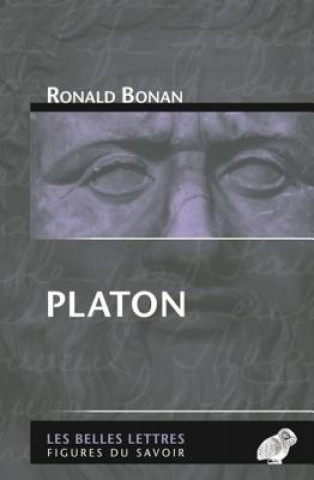
Kód: 12538590
Platon
Autor Ronald Bonan
Some view Plato (428/427 BC - 348/347 BC) as the disciple who betrayed his master Socrates, others as someone who could have been a Sophist but would have failed to resolve debates, or even as the advocate of a “world of ideas” in ... celý popis
- Jazyk:
 Francouzština
Francouzština - Vazba: Brožovaná
- Počet stran: 238
Nakladatelství: Les Belles Lettres, 2014
- Více informací o knize

Mohlo by se vám také líbit
-

ROM'o Le Chien
316 Kč -
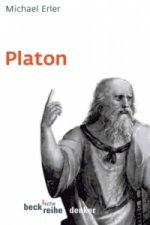
Platon
381 Kč -

Platon
490 Kč -

Big Game Hunting in the Himalayas and Tibet
1017 Kč -

Pro Swift
1714 Kč -

Challenger's Hope
335 Kč -

Statistics with Power
3819 Kč
Darujte tuto knihu ještě dnes
- Objednejte knihu a zvolte Zaslat jako dárek.
- Obratem obdržíte darovací poukaz na knihu, který můžete ihned předat obdarovanému.
- Knihu zašleme na adresu obdarovaného, o nic se nestaráte.
Více informací o knize Platon
Nákupem získáte 68 bodů
 Anotace knihy
Anotace knihy
Some view Plato (428/427 BC - 348/347 BC) as the disciple who betrayed his master Socrates, others as someone who could have been a Sophist but would have failed to resolve debates, or even as the advocate of a “world of ideas” in which idealism’s divagations originated, or ultimately as a reactionary aristocrat opposed to democracy’s vulgarities. In short, people may wish to “overthrow Plato,” but such a tenacious vow is offset by the significance of his philosophy, which was not only ground-breaking, but encyclopaedic in scope. The power behind Ronald Bonan’s book is that he managed to find a way for us to embrace its consistency, and to show how the search for humanity’s greatest virtues required, according to Plato, abstracting values from every form of contestation by basing them upon the absolute, thus joining the ethical aim to the seeking of absolutely true knowledge. To the Socratic idea that “to know good is to do good,” Plato added a philosophy of ideas which made Good intelligible while inferring its entire scale of values. Since this is no simple task, Ronald Bonan demonstrates the challenges stemming from this Platonic institutional act: the status of Truth, the prospect of attaining it (or not) through scientific means, the nature of our errors to which our wanderings correspond, and the thorny status of non-being. Before occupying all of Western metaphysics, such difficulties had already thrust Platonism into a crisis and given rise to highly speculative dialogues aimed at overcoming them. Convinced of the philosopher’s political destiny, Plato placed all such problems in the framework of the Polis, which he believed to be humankind’s most effective educational tool (paideia). Therefore politics, no more than ethics, can be separated from ontology. The book thus points out the scientific, ethical and political ramifications of metaphysical theories, before concluding with thoughts on Plato’s posterity and on the main thrusts of his legacy.
 Parametry knihy
Parametry knihy
Zařazení knihy Knihy ve francouzštině SCIENCES HUMAINES ET SOCIALES, LETTRES
677 Kč
- Plný název: Platon
- Autor: Ronald Bonan
- Jazyk:
 Francouzština
Francouzština - Vazba: Brožovaná
- Počet stran: 238
- EAN: 9782251760797
- ISBN: 2251760792
- ID: 12538590
- Nakladatelství: Les Belles Lettres
- Hmotnost: 245 g
- Rozměry: 190 × 125 × 16 mm
- Datum vydání: 14. October 2014
Oblíbené z jiného soudku
-
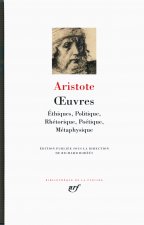
Œuvres
2253 Kč -
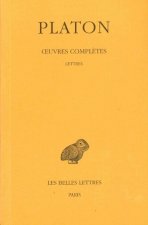
Platon, Oeuvres Completes: T. XIII, 1re Partie: Lettres
1045 Kč -

Plotin, Enneades: Tome VI, 1re Partie: 6e Enneade (I-V).
1078 Kč -

Lucrece, de La Nature. Tome I: Livres I-III
1045 Kč -

Hermes Trismegiste, Corpus Hermeticum. Tome I: Poimandres - Traites II-XII
1516 Kč -

Platon, Oeuvres Completes: Tome IV, 1re Partie: Phedon.
1045 Kč -

Plotin, Enneades: Tome I: 1re Enneade.
1555 Kč -
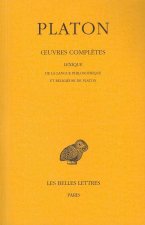
Platon, Oeuvres Completes: Tome XIV: Lexique de La Langue Philosophique Et Religieuse de Platon
1651 Kč -
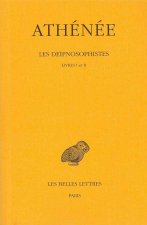
Athenee, Les Deipnosophistes
1555 Kč -

Platon, Oeuvres Completes: Tome XIII, 2e Partie: Dialogues Suspects (Second Alcibiade - Hipparque - Minos - Les Rivaux - Theages - Clitophon)
1045 Kč -

Plotin, Enneades: Tome II: 2e Enneade.
1078 Kč -

Platon, Oeuvres Completes: Tome I: Introduction.- Hippias Mineur. - Alcibiade. - Apologie de Socrate. - Euthyphron. - Criton
1300 Kč -

Plotin, Premiere Enneade
461 Kč -
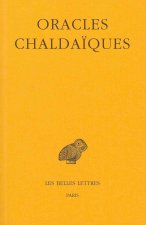
Oracles Chaldaiques: Avec Un Choix de Commentaires Anciens: Psellus, Proclus, Michel Italicus.
1689 Kč -

Platon, Protagoras: .
446 Kč -
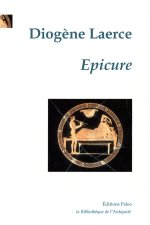
EPICURE
706 Kč -
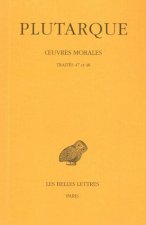
Plutarque, Oeuvres Morales: Tome X: Traites 47 Et 48. - Dialogue Sur L'Amour. - Histoires D'Amour.
1111 Kč -
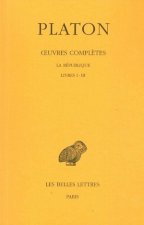
Platon, Oeuvres Completes: Tome VI: La Republique, Livres I-III
1300 Kč -

Platon, Le Banquet
415 Kč -

Lysias, Discours: Tome II: XVI-XXXV. - Fragments.
1045 Kč -
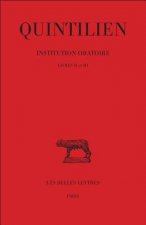
Quintilien, Institution Oratoire. Tome II: Livres II-III
1491 Kč -
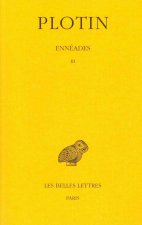
Plotin, Enneades: Tome III: 3e Enneade.
1045 Kč -
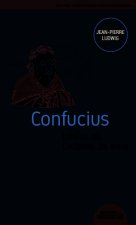
Confucius, l’idéal de l’homme de bien
302 Kč -

Porphyre, de L'Abstinence: Tome I: Introduction. - Livre I.
1045 Kč -

Aulu-Gelle: Les Nuits Attiques, Tome II: Livres V-X
1078 Kč -
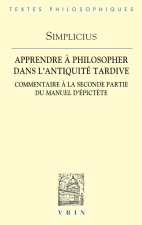
Apprendre à philosopher dans l'Antiquité tardive
851 Kč -

Pensées pour moi-même
677 Kč -

Commentateurs antiques
765 Kč -
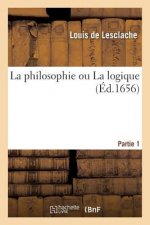
La Philosophie Ou La Logique Partie 1
804 Kč -

Aulu-Gelle, Les Nuits Attiques. Tome IV: Livres XVI-XX
1555 Kč -
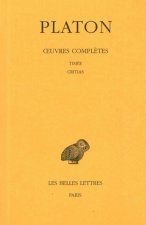
Platon, Oeuvres Completes: Tome X: Timee. - Critias
1396 Kč -
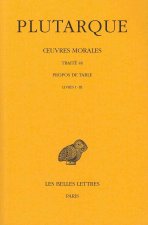
Plutarque, Oeuvres Morales: Tome IX, 1ere Partie. Traite 46. - Propos de Table (Livres I-III).
1045 Kč -

Plutarque, Oeuvres Morales: Tome IX, 2e Partie: Traite 46. Propos de Table (Livres IV-VI)
1045 Kč -

Longin, Rufus, Fragments. Art Rhetorique
1949 Kč -

Demetrios, Du Style
1555 Kč -
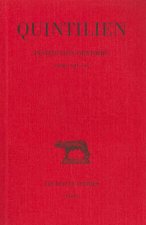
Quintilien, Institution Oratoire. Tome V: Livres VIII Et IX
1300 Kč -

Aulu-Gelle, Les Nuits Attiques. Tome III: Livres XI-XV: Livres XI-XV
1300 Kč -

L'âme comme livre
1949 Kč -
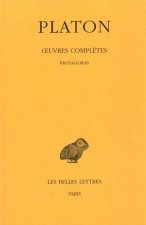
Platon, Oeuvres Completes: Tome III, 1re Partie: Protagoras
880 Kč -

Proclus, Commentaire Sur Le Parmenide de Platon. Tome III: 1re Partie Introduction - 2e Partie Livre III
3827 Kč -

Libre comme une déesse grecque
331 Kč -
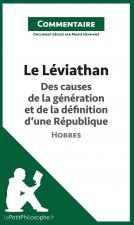
Le Leviathan de Hobbes - Des causes de la generation et de la definition d'une Republique (Commentaire)
374 Kč -
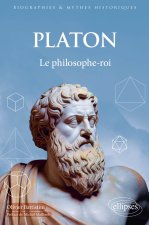
Platon
822 Kč -

Alcee, Sapho, Fragments
1400 Kč -

Discours de la corruption dans la Grèce classique
2324 Kč -

Hermes Trismegiste, Corpus Hermeticum: Tome III: Fragments Extraits de Stobee I-XXII.
1333 Kč -

Ciceron, Discours: Pour Sextus Roscius
1045 Kč -
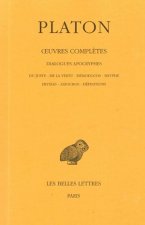
Platon, Oeuvres Completes: T. XIII, 3e Partie: Dialogues Apocryphes (Du Juste - de La Vertu - Demodocos - Sisyphe - Eryxias - Axiochos - Definiti
1045 Kč -

Contre les physiciens
851 Kč
Osobní odběr Praha, Brno a 12903 dalších
Copyright ©2008-24 nejlevnejsi-knihy.cz Všechna práva vyhrazenaSoukromíCookies



 Vrácení do měsíce
Vrácení do měsíce 571 999 099 (8-15.30h)
571 999 099 (8-15.30h)